Catalan situation '˜partially rooted' in the Spanish Civil War
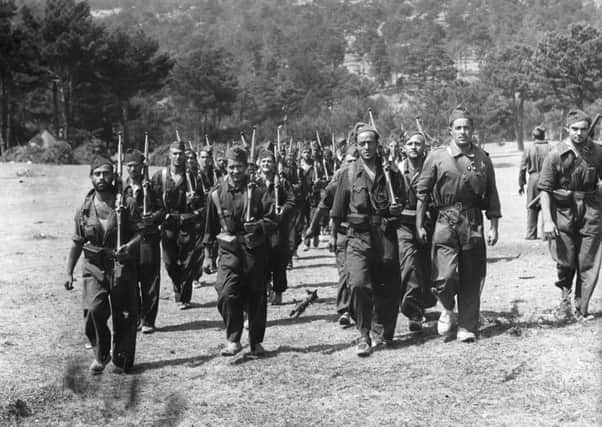

The Spanish Civil War set brother against brother, divided towns and communities and split the wider world, as the Fascist military regime of General Francisco Franco and the forces of the Second Republic fought a bloody three year campaign in the 1930s. And the conflict had a particular resonance in Scotland, a hotbed of political radicalism during this period, with widespread sympathies for the socialist Republican side. It led to 549 Scots signing up with the International Brigades of more then 30,000 volunteers who travelled from around the globe to fight the forces of Fascism. And the legacy of these Scots is to be examined later this month at the Scottish Parliament’s annual Festival of Politics. Professor Willy Maley, the son of Glaswegian volunteer James Maley, is to take part in an event along with Daniel Gray whose 2008 book, Homage to Caledonia, recounts the journey of the Scots who fought. Prof Maley, who teaches English Literature at Glasgow University, says the current unrest in Catalonia is to some extent rooted in the wounds of the civil war era.
Advertisement
Hide AdAdvertisement
Hide Ad“What’s happening in Spain now is partly fallout from the early 1930s,” he says. “In the early 1930s Catalonia got a certain amount of autonomy. It was debated, there were arguments within Republican and progressive circles whether fully recognising Catalonia was a mistake or not.”
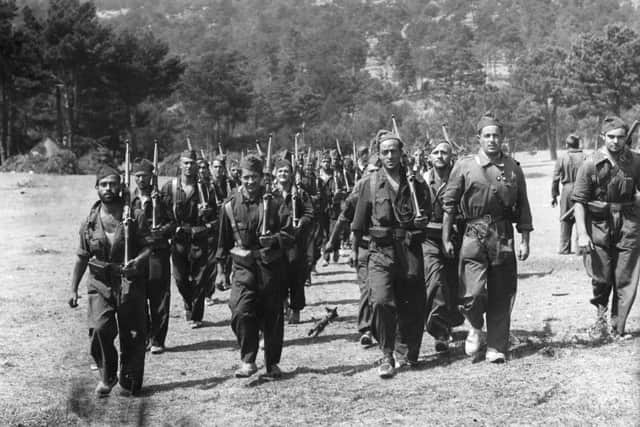

Any aspiration for Catalonian independence was extinguished for generations with the victory of the Franco regime in the civil war.
Prof Maley added: “That legacy of division is something that obviously looms large and at the moment there’s all kinds of ghosts from the past that people can see and I know that Franco’s name has been invoked again in relation to the strong-arm tactics in the raids against the Catalan government.”
The death of Steve Fullarton from Glasgow in 2008 marked the passing of the last survivor of the Scots who fought in the Spanish Civil War.
And while the sacrifice of the Scots who went and fought is widely lauded, Prof Maley admits much of it has been romanticised and “set in amber.” The involvement of luminaries like the author George Orwell on the Republican side, and his published reflections, Homage to Catalonia, perhaps contributed to this.
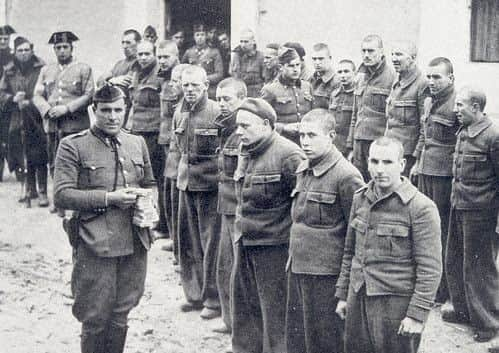

The civil war split families, towns and cities for generations and many of the festering grievances of the time are only being faced up to now in Spain.
“Even sons and daughters were silenced,” Prof Maley adds.
“Now with the grandchildren, there’s been an opening up and a sense of the historical memory and so on – it’s not the unspeakable thing it was and I think there’s massive interest.”
Advertisement
Hide AdAdvertisement
Hide AdThe situation in Spain was also a microcosm of the ideological conflicts which were to mark Europe for decades to come. It began when General Franco led a military rebellion against the Republican government in the summer of 1936. His forces were supported by an alliance of generals, monarchists and conservatives as well as much of the Catholic church. The aspiring Fascist regime also enjoyed the military assistance of Hitler and Mussolini. The Republican government, a coalition of socialists and communists, in turn received arms from Stalin’s Soviet Union. It could also call on the remarkable support of more than 30,000 International Brigade volunteers who came from as far afield as Cuba, America, Canada, the UK and Ireland.
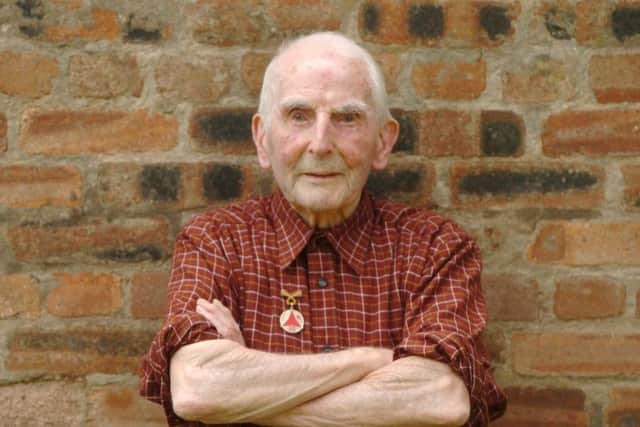

But particularly Scotland which had proportionately the highest number of volunteers of any country and made up about a quarter of the total British volunteer force. So why such interest north of the Border? There was certainly the feeling of injustice, duty and responsibility and, for some, a simple sense of adventure. But 1930s Scotland was the time of Red Clydeside, the emergence of the Labour party as a serious political force and the rise of a self-educated, working class. Men had come back from the First World War to be met with chronic deprivation and had already marked their agitation with the hunger marches and the General Strike of 1926.
“It’s very easy to go back to the 1930s and say these people were Stalin’s stooges or they were gullible, they were romantics and so on,” Prof Maley adds.
“In fact their conflict was Clydeside, the coal fields in Fife and so on – their context was a different kind of working class radicalism, was a different kind of internationalism. They also saw Fascism as a threat that could endanger the entire world.”
The non-interventionist approach of the UK government at that time meant it was an offence for the hundreds of young Scots to make the journey to fight. The influence of the then proscribed Communist Party of Great Britain in recruiting UK volunteers also deterred the higher of the echelons of the trade unions from getting involved.
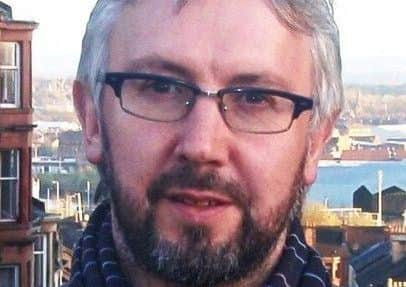

Any misplaced notions of romanticism soon disappeared when the brigaders reached Spain. They were met with the horrors of war. Aberdonian volunteer John Londragan recalled the chilling memory of a train journey through Barcelona during an air raid.
Advertisement
Hide AdAdvertisement
Hide Ad“That was our first taste of war,” he said in a 1991 TV interview used in 2009 STV documentary, the Scots Who Fought Franco.
“It was the first time we’d actually seen the bodies of men, women and children spread all over the street and so forth and the rubble of houses coming down.
“It was something we would all see in the Second World War, but at this particular time it was completely new. The bombing of civilians, the use of the civilian population as part of the war target. We were shocked.”
While hundreds of Scots battled on the frontline, back home efforts to support them were rallied behind the “Aid for Spain” campaign. This spearheaded efforts to raise both funds and awareness of the Republican movement. Events such as concerts, film showings and flag days for Spain became a regular feature of Scottish life.


But the Republican forces often found themselves ill equipped and underprepared for what lay ahead. Heavy losses were suffered at the Battle of Jarama in early 1937, where James Maley was captured and held as a prisoner of war. The Battle of Brunete a year later also saw the Republican side – and the International Brigades – suffer devastating losses. The brigades were eventually withdrawn from combat in 1938 by the Republican hierarchy in a move which it was hoped would see German and Italian intervention in turn curtailed. It was to be a forlorn hope. But the departure of the brigades was marked by an emotional parade through Barcelona where hundreds of thousands of Catalans lined the streets. And despite the outcome, veterans insisted to their final days that their involvement in the conflict was the proudest years of the lives.
“Their memory and legacy is important,” Prof Maley adds.
“They weren’t all peas from the same pod, people went at different ages and stages with different political backgrounds and different levels of education.”
He adds: “The fact that it’s back in the news today, that Spain is back in the news, shows it’s not that far away.”
• No Pasaran! Scots and the Spanish Civil War, takes place at the Scottish Parliament Festival of Politics on Saturday 21 October, 1pm-2:30pm, £6 (£4), festivalofpolitics.org.uk